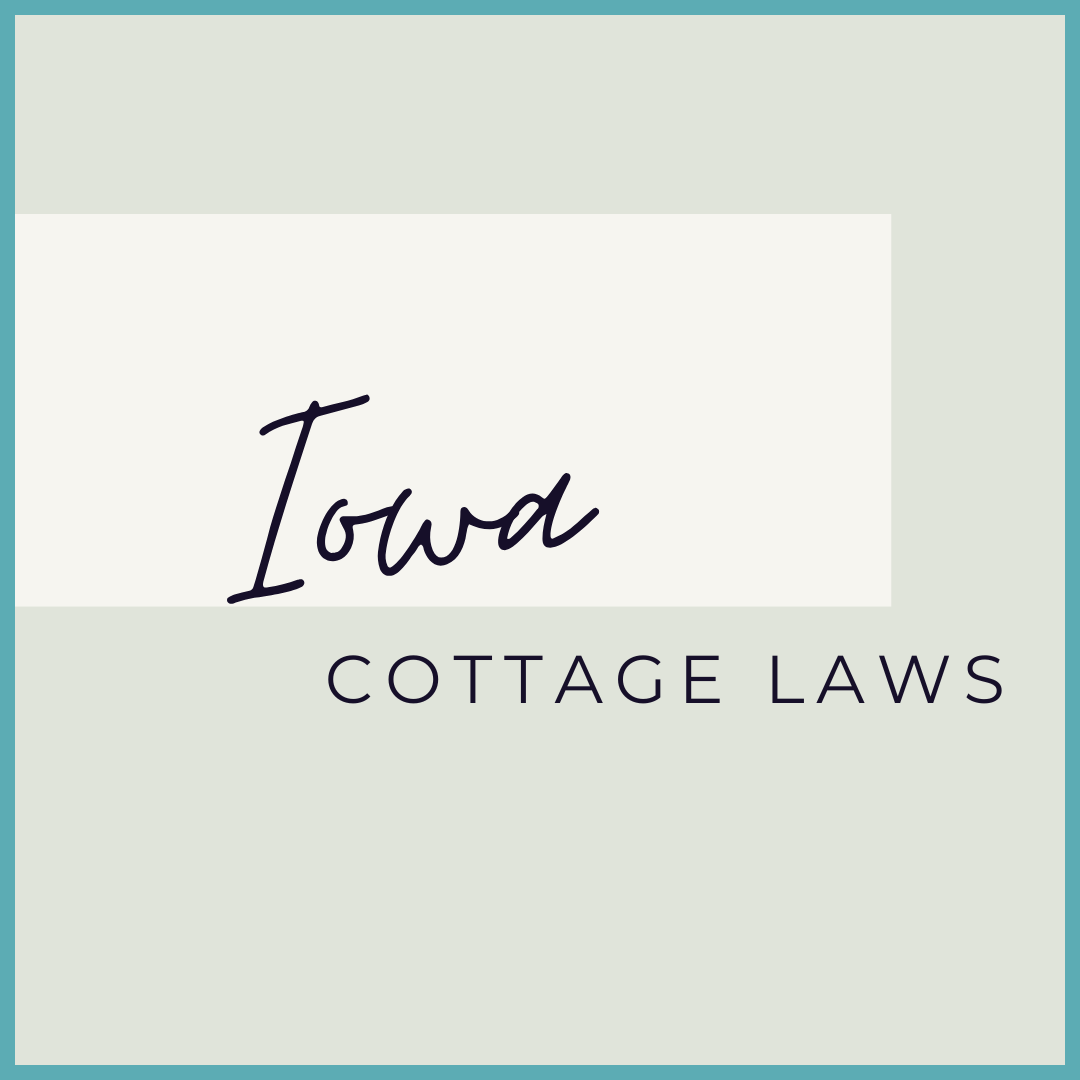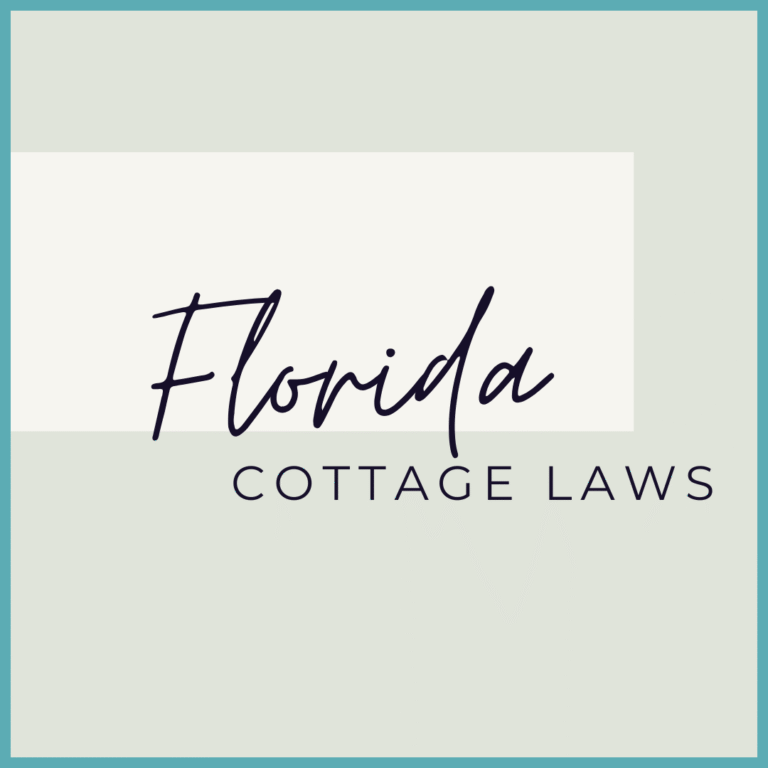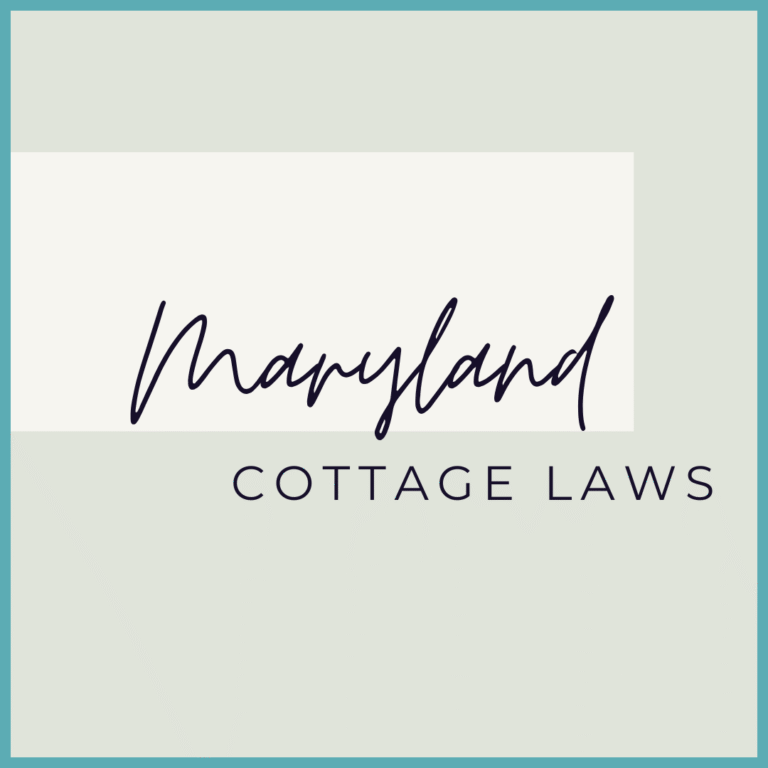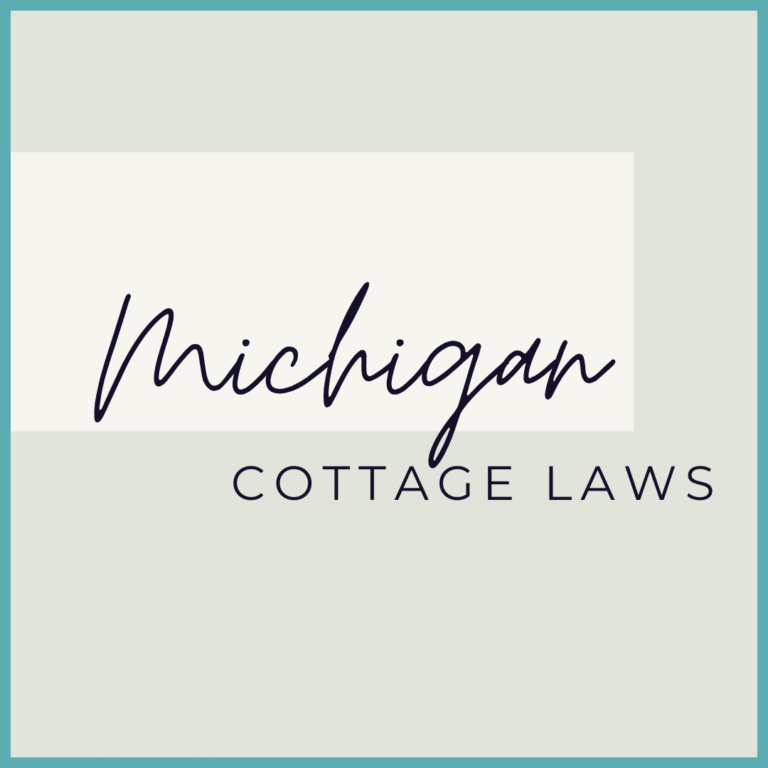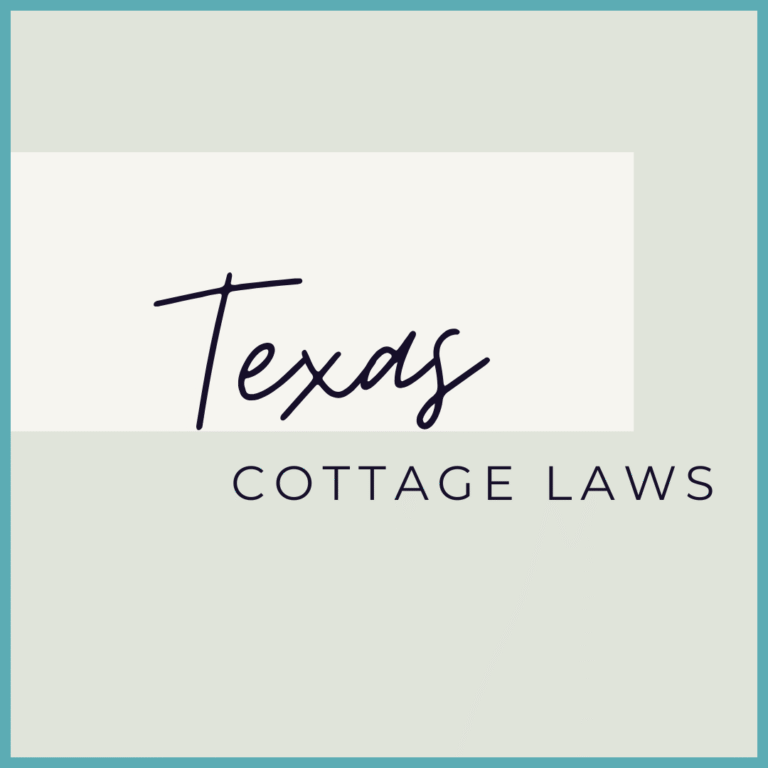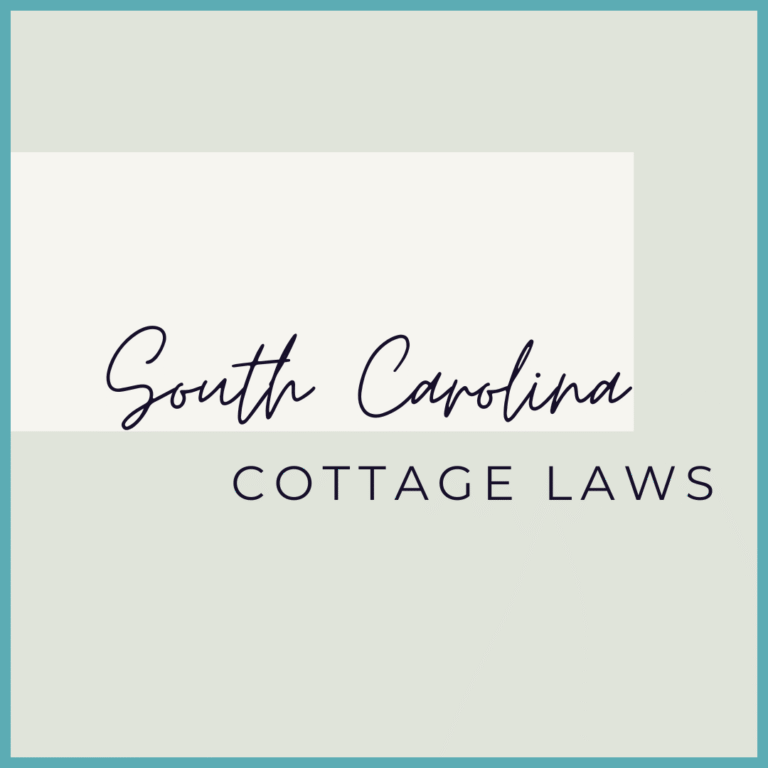Iowa Cottage Laws
Iowa has what many consider the best cottage food laws in the entire United States! With a unique dual-track system that grows with your business, Iowa offers incredible opportunities for home food entrepreneurs. Here's everything you need to know to get started.
Iowa's Unique Dual-Track System
Iowa gives you two pathways, depending on your goals and the types of food you want to make:
Track 1: Cottage Food Operations (Most Beginners Start Here)
Perfect for: Testing the waters, part-time income, non-perishable foods
What you can do:
- Make almost all types of non-perishable foods
- Sell directly to consumers
- No license or inspection required
- No sales limits
- Online sales and shipping within Iowa
Track 2: Home Food Processing Establishment (For Growing Businesses)
Perfect for: Serious entrepreneurs wanting to sell perishable foods or wholesale
What you can do:
- Make both perishable and non-perishable foods
- Sell wholesale to restaurants and stores
- Up to $50,000 in annual sales
- Requires license ($50/year) and kitchen inspection
Track 1: Cottage Food Operations (The Easy Start)
What Can You Make?
Iowa allows almost all non-potentially hazardous foods – if it doesn't need refrigeration, you can probably make it:
Traditional Items:
- All baked goods (breads, cookies, cakes, pies, pastries)
- Candies and confections
- Jams, jellies, preserves
- Granola, trail mix, cereals
- Dried fruits and vegetables
- Herbs and spices
Iowa's 2022 Additions:
- Acidified and pickled foods (pickles, salsas, sauerkraut)
- Home-canned pickles, vegetables, and fruits (with pH testing)
What You CAN'T Make:
- Foods requiring refrigeration (cream pies, cheesecakes)
- Milk or dairy products (except as ingredients)
- Meat and poultry products
- Low-acid canned foods
Where Can You Sell?
- From your home
- Farmers markets
- Roadside stands
- Special events and fairs
- Online with shipping (within Iowa only)
- Direct to consumers anywhere in Iowa
Requirements:
- No license or permit needed
- No inspections required
- No sales limits
- Simple labeling requirements
Track 2: Home Food Processing Establishment (The Growth Path)
What Can You Make?
Everything from Track 1, PLUS:
- Perishable baked goods (soft pies, custard-filled items, cheesecakes)
- Personally raised poultry (under 1,000 birds)
- Products with inspected red meat
- Made-to-order foods served immediately
Note: Interestingly, this track does NOT allow acidified foods – you'd use Track 1 for those.
Where Can You Sell?
Everything from Track 1, PLUS:
- Wholesale to restaurants
- Wholesale to grocery stores
Requirements:
- Annual license: $50
- Kitchen inspection before starting
- Sales limit: $50,000 annually
- More detailed labeling
- Private well testing (if applicable)
- No pets in kitchen or food storage areas
Getting Started: Your Action Plan
Step 1: Choose Your Track
- Start with Track 1 if you want to test the market with simple items
- Consider Track 2 if you want to sell perishable items or wholesale from the start
Step 2: Plan Your Products
Track 1: Focus on shelf-stable items that don't need refrigeration Track 2: Include perishable items if desired
Step 3: Set Up Your Kitchen
Track 1: Use your regular home kitchen Track 2: Prepare for inspection standards
Step 4: Handle Licensing (Track 2 Only)
- Apply for Home Food Processing Establishment license
- Schedule kitchen inspection
- Pay $50 annual fee
Step 5: Create Labels
Track 1 – Simple labels need:
- Your name, address, phone, OR email
- Product name
- Statement: “This product was produced at a residential property that is exempt from state licensing and inspection”
Track 2 – Detailed labels need:
- Business name and address
- Product name
- Complete ingredient list
- Net weight/volume
- Additional allergen information
Step 6: Start Selling
Begin at farmers markets or from home to build your customer base.
Labeling Requirements
Track 1 (Cottage Food Operations):
Required:
- Contact info (name/address/phone/email – at least one)
- Product name
- Exemption statement
For acidified/pickled foods, also add:
- Date processed and canned
- Allergen information (if applicable)
Track 2 (Home Food Processing Establishment):
Required:
- Business name and address
- Product name
- Ingredient list in descending order by weight
- Net weight or volume
- Allergen information
The Money Side
Track 1: No Limits!
Cottage Food Operations have no sales limits – you can earn as much as your business can generate.
Track 2: $50,000 Annual Cap
Home Food Processing Establishments can earn up to $50,000 per year.
Smart strategy: Many entrepreneurs start with Track 1 to test and build their business, then switch to Track 2 when they want to add perishable items or wholesale opportunities.
Special Iowa Advantages
Online Sales and Shipping
Iowa allows both tracks to sell online and ship within the state – a significant advantage over many states.
Acidified Foods
The 2022 addition of pickles, salsas, and sauerkraut to Track 1 gives Iowa cottage food producers more options than most states.
State Protection
Iowa law specifically prohibits local governments from adding licensing requirements or banning cottage food sales – protecting your business from local interference.
Long History
Being the first state to allow cottage foods means Iowa has refined their system over decades, resulting in business-friendly regulations.
Making the Most of Iowa's System
Start Simple, Scale Smart
- Begin with Track 1 to test your market
- Build a customer base with simple, shelf-stable items
- Add acidified foods (pickles, salsas) if desired
- Consider Track 2 when ready for wholesale or perishable items
Leverage Online Sales
Take advantage of Iowa's online sales and shipping permissions to reach customers throughout the state.
Build Relationships
Iowa's cottage food community is strong – connect with other producers at farmers markets and online groups.
Success Tips for Iowa
Test thoroughly: With acidified foods allowed, make sure you understand pH requirements and testing.
Start local: Build a strong base at farmers markets before expanding online.
Plan your growth: Understand both tracks so you can make strategic decisions as your business grows.
Keep good records: Especially important for Track 2 businesses.
Take advantage of freedom: Iowa's permissive laws let you be creative – explore unique products that set you apart.
The Bottom Line
Iowa's cottage food laws represent the gold standard for supporting home food entrepreneurs. The dual-track system lets you start simple and grow sophisticated, while the lack of sales limits and permission for online sales provide real business-building opportunities.
Perfect for: Anyone wanting maximum flexibility and growth potential in cottage food
Key advantages:
- Dual-track system grows with your business
- No sales limits on Track 1
- Online sales and shipping permitted
- Acidified foods allowed
- Strong protection from local restrictions
- Decades of refinement
Consider your goals:
- Track 1 for simple start, unlimited growth potential
- Track 2 for wholesale opportunities and perishable foods
Whether you're a weekend baker testing family recipes or an ambitious entrepreneur planning a substantial food business, Iowa provides the legal framework and flexibility to help you succeed. The state's commitment to supporting cottage food businesses – demonstrated by 40+ years of continuous improvement – makes Iowa an exceptional place to start and grow a home food business.
Ready to start your Iowa cottage food business? For Track 1, you can start immediately with proper labeling. For Track 2, contact the Iowa Department of Inspections, Appeals, & Licensing at dial.iowa.gov. Happy baking in the Hawkeye State!
